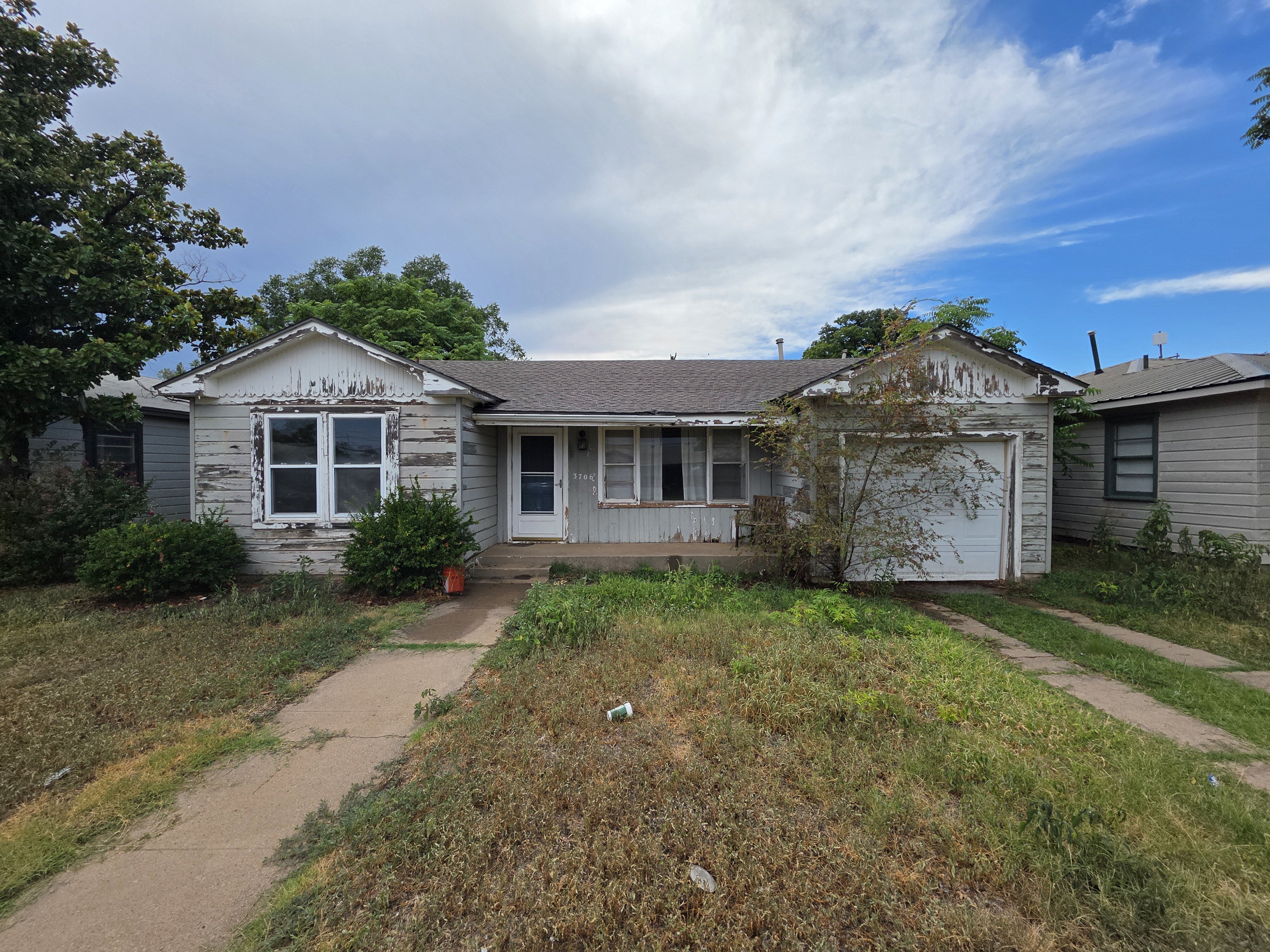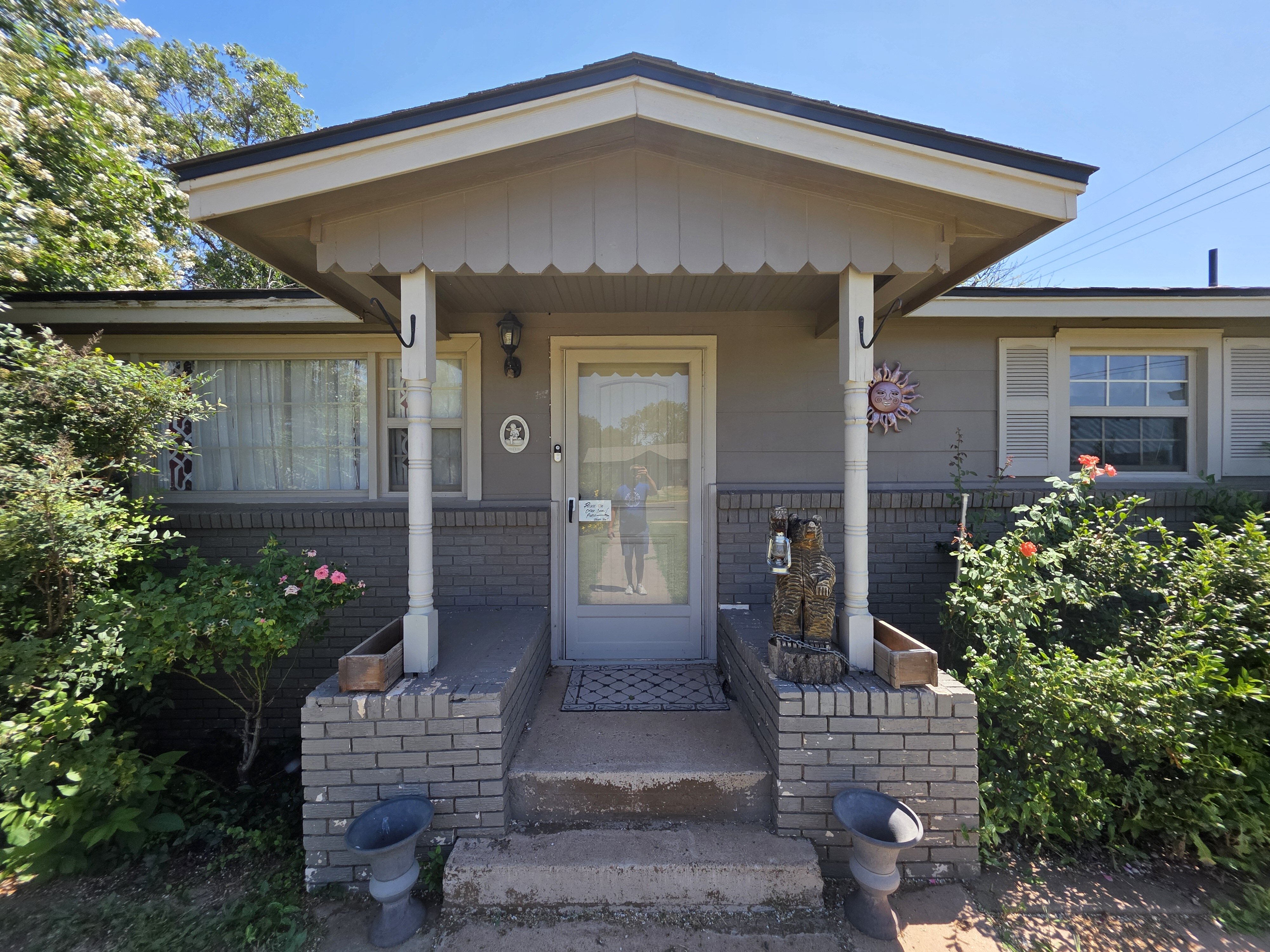“They pulled through and pulled strings… and before you knew it, I was a happy camper. Get a hold of these people and they can help you out. I guarantee it”
Divorce. It’s a word no one imagines will be part of their story when a marriage begins—but for many, it becomes a difficult reality. According to the American Psychological Association, nearly 40 to 50% of first marriages in the U.S. end in divorce. When couples part ways, one of the biggest questions becomes: what happens to shared property like the family home? Is it always divided equally down the middle? The answer depends on several factors, including your state’s laws and the specifics of your divorce agreement.
Can You Divorce Without Selling the House?
When deciding whether to keep or sell your home during a divorce in Lubbock, Texas, understanding all available options is essential. The first critical step is informing your attorney and the Court about when the property was acquired. This information determines whether the home qualifies as marital property to be divided, or if it’s considered separate property exempt from asset division.
If the Court classifies a property as ‘separate property’—meaning it was acquired before marriage, received as a gift or inheritance, or purchased with non-marital funds—the other spouse typically has no claim to it, regardless of whether you live in a community property or equitable distribution state. However, exceptions may apply, especially if improvements were made that increased the property’s value. For clarity on whether your home qualifies as separate or marital property, consulting with a legal expert is highly recommended.
When determining who gets the house, courts examine several key factors, including:

The current market value of the property.

Each partner’s financial situation and stability.

The employment status and earning potential of each spouse.

Both physical maintenance and financial contributions to the marital home.

The age and overall physical and mental wellbeing of each partner.

The custody arrangement and how much time each parent will spend with the children.

JARROD FRANKUM
#1 CASH HOME BUYER IN TEXAS
At Electrum, we understand—selling a house during a divorce isn’t just a transaction. It’s emotional. It’s heavy. It’s personal.
You’re not just splitting assets. You’re closing a chapter. And that’s why we’ve built a process designed to lift some of that weight off your shoulders.
We handle everything with care, speed, and full transparency. We cover the closing costs. We keep things private. And we move at your pace—so you can focus on healing and finding your next step.
No showings. No agent fees. No drawn-out back-and-forth. Just a clear path forward with people who understand what you’re walking through.

Who Gets The House In A Divorce?
In Texas, divorce proceedings require careful handling of property division according to state law. Most states follow an equitable distribution approach, which aims to divide assets fairly rather than equally. Courts consider various factors including each spouse’s earnings, financial and non-financial contributions to the household, and other responsibilities that maintained the marriage.
It’s important to note that nine states—Arizona, California, Idaho, Louisiana, Nevada, New Mexico, Texas, Washington, and Wisconsin—operate under community property laws, where assets acquired during marriage are typically considered jointly owned and divided equally (50/50). Alaska also permits this approach when both spouses mutually agree.
For the family home, divorcing couples face several options. You can sell the property and split the proceeds, arrange for one spouse to buy out the other’s share, or follow court-determined ownership arrangements. At Electrum Properties, we understand these challenging situations and offer fast, cash solutions for homeowners needing to quickly resolve property matters during divorce—helping you get your freedom back with a fair price and simplified process.
One spouse buys out the other’s legal interest and keeps the home
In community property states, assets acquired during marriage—such as your home—are typically divided equally. However, selling isn’t your only option. Many couples opt for a buyout, where one spouse purchases the other’s equity share. At Electrum Properties, we frequently see this solution create a win-win outcome for both parties. If you choose this path, remember that the title must be legally transferred to the buying spouse’s name within the timeframe specified in your divorce decree, allowing both of you to move forward with clarity and freedom.
One spouse maintains use and occupancy of the home for a specified period; typically until the youngest child turns eighteen, after which the house can be sold
In many jurisdictions, the parent granted primary custody of minor children may retain the right to stay in the family home until the youngest child turns eighteen. During this period, the court typically determines which spouse—or if both—will be responsible for ongoing expenses such as mortgage payments, utilities, and homeowners insurance. Once all children reach adulthood, the property is usually sold, with proceeds divided between former spouses according to the terms specified in their divorce agreement.
Co-own the home
Divorce doesn’t have to create financial hardship or emotional turmoil. In certain situations, continuing to co-own your family home can provide much-needed stability, especially when children are part of the equation. For example, both spouses might choose to remain on the mortgage to maintain the children’s sense of security and preserve their daily routines. Consider a scenario where the husband is the primary income earner while the wife, having dedicated years to raising the family, temporarily lacks the financial standing or credit history to refinance or buy out his portion. At Electrum Properties, we understand that during these transitional times, co-ownership might represent the most balanced and compassionate solution for your family.
However, while this arrangement may support family stability, it does come with potential complications. The spouse who relocates must trust the remaining partner to maintain timely mortgage payments. If payments are delayed or missed, both individuals’ credit scores could suffer significant damage, regardless of who continues to occupy the property. We’ve helped many homeowners navigate these complex situations with cash solutions that provide financial freedom and peace of mind for both parties.
The house is sold immediately and any equity is divided
During divorce proceedings, selling your shared home is often the cleanest solution for both parties. Typically, spouses agree on a listing price, put the property on the market, and divide the proceeds according to their agreement or court ruling. However, traditional sales can become complicated if your property needs significant repairs, the real estate market is slow, or there are outstanding liens. This is where Electrum Properties steps in—as cash home buyers, we specialize in fast, hassle-free purchases in any condition, offering a win-win price that lets both parties move forward quickly without the added stress of a lengthy selling process.
Selling Your House During A Divorce?
Contact Us Today For Your No-Obligation Cash Offer!
"*" indicates required fields
Compare: Steps to Sell a Home During Divorce
Selling your house through a traditional sale during divorce can be emotionally draining and time-consuming, considering all the steps required:
1. Hire A Divorce Specialist Real Estate Agent
First, you’ll need to establish how the property will be divided—either through legal counsel or a Court decision.
2. Agree On Home Sale Specifics
You and your spouse must reach agreement on all aspects of the home sale process.
3. Reviewing offers from buyers
With just a few offers, decision-making might be straightforward. However, in a competitive market, multiple bids can lead to disagreements and delays as attorneys and agents navigate the complexities.
4. Divide the Proceeds
The division of proceeds should already be clearly outlined, either through Court orders or your legal team’s agreements.
These steps often cause significant emotional stress for people who simply want to sell quickly, move forward with their lives, and leave the past behind. Don’t you deserve a simpler solution?
INSTEAD, YOU CAN SIMPLY…
Sell Your House AS-IS to A Cash Buyer
We make it easy
We understand how hard and full of emotions this moment can be. So we don’t want this to be one more thing to drain your energy. Contact us today!



Struggling to communicate with your ex or feeling emotionally drained by the divorce process? If you’re ready to move on and need a fast, stress-free way to sell your marital home, working with a direct cash buyer like Electrum Properties could be exactly what you need to turn the page.
At Electrum Properties, we buy homes in any condition—no matter the circumstances surrounding your divorce or finances. Our process is simple: no repairs, no agent fees, and no waiting. We provide fair, all-cash offers with quick closings, allowing you to avoid drawn-out negotiations with attorneys or real estate agents. For couples going through a difficult separation, our solution makes it easier to part ways and start fresh, without the extra burden of a complicated home sale.
How Our Process Works
Step 1
Call us to discuss your home, your situation, and what you hope to achieve through selling.
Step 2
We’ll make a competitive offer promptly—sometimes even during our first phone conversation!
Step 3
Take all the time you need to consider your options and decide what works best for your situation.
Step 4
If you accept our offer, we’ll handle all the details and can close in just a matter of days!
Timeframe: After learning about your property, we’ll quickly create a personalized offer. If you choose to accept, we can close in as little as 7 days! Of course, if you need more time, we will always work according to your schedule and needs.
Selling Your House During A Divorce? Contact Us For Your Cash Offer Today!
Electrum is a reliable local home buyer dedicated to making the selling process easy—no matter your situation or the condition of your property. We provide straightforward, competitive cash offers with no agent fees, hidden costs, or long waiting periods. If you’re looking for a fast, hassle-free way to sell your home, we’re here to help you take the next step toward freedom. Reach out anytime at 806-630-0875 to get started. Known for quick closings, low fees, and a smooth, transparent process, we focus on creating solutions that benefit both homeowners and the community.
Going through a divorce and need to sell your home fast? Electrum Properties is here to help. We specialize in providing real estate solutions for homeowners facing tough situations—just like yours. Reach out today for a no-obligation cash offer, no matter the condition of your property. Whether your home needs major repairs, has been sitting vacant, or simply holds too many memories, we’ll take care of everything once you accept our fair offer. No fixes, no clean-up, no stress. Our goal is to make the selling process during divorce as simple and painless as possible—so you can focus on moving forward.
SELL MY HOUSE NOW!
"*" indicates required fields








